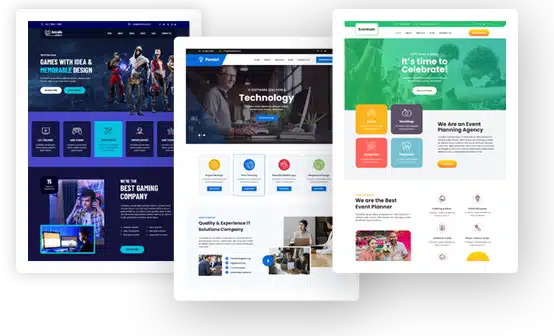11 Simple SEO Tips For New Website Owners To Boost Traffic

If you are a new website owner, you are probably wondering how to increase your traffic. You are doing your best, creating good content, yet you don’t have a lot of success.
Well, here are some SEO tips that can help you out.
-
Create a sitemap
Sitemap is an important SEO tool because Google uses it as a way to understand the structure of your website. Google bots can then crawl your pages and index them properly so you can appear in search engine rankings.
However, this shouldn’t worry you too much because you can do this easily with Google’s free sitemap building tool. You could be done in minutes and Google can then consider your site for top search rankings.
-
404 Creativity
404 pages are usually left just as they are – Page Not Found. However, smart website owners use this page as a marketing and traffic boosting page as well.
For one, come up with an interesting or funny way to say that there is nothing there. Then, place a link that will lead them to similar or same content – or any other page of your site.
Don’t let this page deteriorate your rankings, use it as a way to boost them and boost your traffic.
-
Speed is pivotal
In this fast-paced world, it’s no wonder speed online is more than essential for a website to survive. Not only will users bounce off your page but Google will also place you lower on their rankings – they just favor their users and user experience so much that they don’t tolerate something that could annoy them. Make sure your site is fast and that everything loads quickly. Remove any unnecessary images and install plugins that can help you optimize your images. On WordPress, you can use Hummingbird for this.
-
Be mobile friendly
Google has recently created a new update for their algorithm which favors mobile friendly sites even more than it did before. While this policy stands for large websites only for now, there are still some factors in the algorithm which judge each website by its mobile responsiveness.
Make sure your website is if you want to rank.
This should really come as no surprise – just look at how much you are using your phone for consuming online content. WordPress is mobile friendly by default, for example – this means that if you create your website there, it will look natural on every device.
-
Research keywords
Keywords are one of the first things you should consider when you start a website. In fact, you should already know about them and you should be applying keyword optimization to your site already.
Do a keyword research – there are paid and free tools for this. Find the one that fits your content and the one that you can rank easily for. Then, place it through your article. One in the title, one in the first paragraph, one in the subtitles, and at least 3 or 4 throughout your article.
Use it when optimizing images – within the ALT text, caption and description – videos, URLs, meta descriptions and so on.
-
Don’t plagiarize
“If there is one thing Google hates more than poor speed or unresponsive sites, it’s unoriginal content. So, content that’s just copied from another website won’t work. Neither will rewritten content which adds no original value or auto generated content, scraped content, content that’s been put together from various sites and so on,” says Jessica Flynn, a marketing manager at Originwritings.com.
Google will not only tank your rankings, but it will also penalize you for this. You need to get creative and come up with something original and unique.
If you have to, use a plagiarism testing software like Grammarly or CopyScape just in case there are some parts that resemble other, existing content.
-
Share engaging content
Now that you are aware of just how dangerous and damaging plagiarism – in any form – can be, you can focus on creating engaging and interesting content that will really make a difference. For one, focus on a niche. Then, come up with some topics that would truly engage your audience.
You have several types of posts you can share. Pillar posts should be your main focus in the beginning. These are long, meaty posts which contain valuable information – longer than 1500 words, usually titled “A Complete Guide to…” or “How To…”.
Then you have listicles “10 Tips on…”, “5 Ways to…” and many other forms, like reviews, unpopular opinions and so on. All of these attract a lot of attention either because they add a lot of great value to online world or they are simply interesting.
Add images, videos, infographics, links to other authority websites etc. Make your content really interesting and useful. Pay attention to formatting as well.
-
Make use of social media
“Social media can really boost your rankings. The more people share your content – like and comment as well, the more Google realizes that this is something valuable and useful. It will also bring traffic to your site,” says Andy Hacks, a SEO expert at AcademicBrits.com.
Create interesting headlines that will grab attention and drive them to click and share later. Make it easy for your readers to share by placing social media buttons on your site – you can use plugins for this. You should also have social media pages – focus on one or two in the beginning and then move on to more.
For instance, experts recommend Twitter and Pinterest as social media platforms where you can easily get attention and then moving on to having a Facebook page and other social media profiles.
-
Build backlinks
Building quality backlinks is hard but it pays off. Guest post on authority websites in your niche. For instance, a poor backlink choice would be posting to a shady website or a completely unrelated website. If your website is dedicated to beauty tips, don’t link to a road paving site. This signals to Google that you are trying to trick your visitors and that results in a penalty.
-
Go easy on the ads
Ads are great for you in that they bring you income. However, your users have no use of them and Google doesn’t like it when websites place a ton of ads everywhere. Stick to places where they won’t bother anyone.
-
Track your progress and adjust
Finally, use Google Analytics as a way to track your progress and measure your success. Then adjust and change your content and site as well as tactics accordingly.
Getting traffic can be difficult in the beginning. It takes an average of 3 to 6 months for Google to take you seriously but with good content and SEO, you can already build an audience by then. Hopefully, these tips will help.


